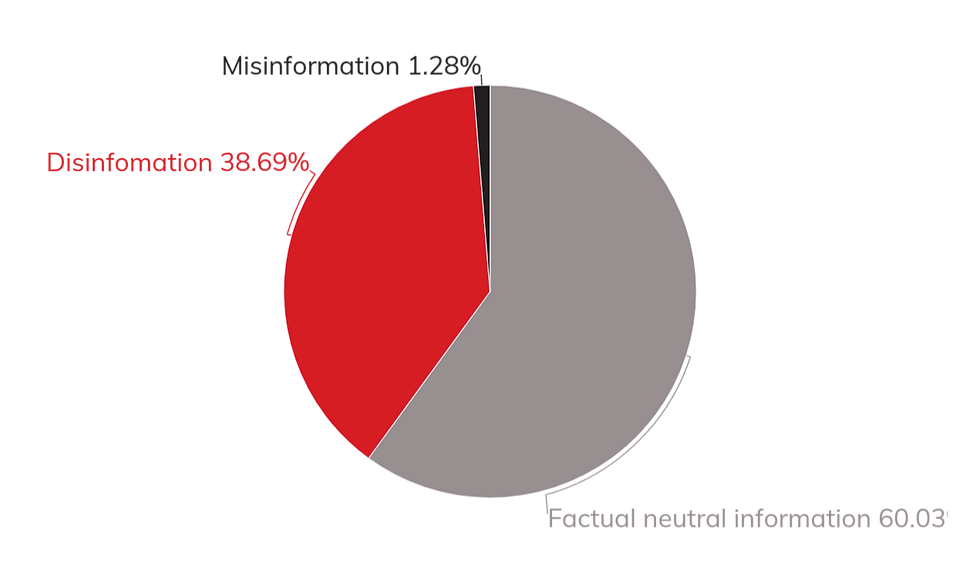Foreign policy of Lithuania in the spotlight of disinformation
- Agnė Eidimtaitė
- Mar 15, 2021
- 2 min read
Updated: Oct 10, 2023
Issues related to Lithuanian foreign policy tended to dominate the negative information flow in February 2021, largely resulting from Lithuania’s official stances toward Russia. Lithuania’s refusal to buy Sputnik V vaccine and the preparation of additional sanctions on Russia stimulated negative information flow. Domestic policy of Lithuania and defence topics were prevailing targets as well.

On February 1-28th 2021, Debunk EU detected 560 articles that were identified as disinformation or misinformation related to Lithuania. Compared to previous period, this constituted approx. 9.16% increase in total amount of cases observed throughout the month. ‘Problematic information’ has potentially reached approx. 100 million contacts around the world. In February Lithuania was mostly presented as a politically failed state conducting irrational anti-Russian policy and interfering in other countries.
Throughout the monitored period no major peaks of problematic information were identified with only February 7th slightly leading in terms of several problematic cases due to the statement of Lithuanian PM Ingrida Šimonytė on Sputnik V vaccine. Russian officials’ reaction to the statement affected the dissemination of misleading information directly related to Lithuania on February 7-11th. Moreover, announcement made by Lithuanian Foreign Minister G. Landsbergis about possible additional sanctions on Russia and conclusion reported by The Lithuanian Radio and Television Commission, stating that the Russian TV channel “Planeta RTR” program incited hatred, also resulted as triggers for higher dissemination of disinformation during the same period.
New sub-narratives concerning Lithuanian foreign policy were detected: Lithuania was accused of interfering in domestic affairs of Georgia, Moldova, Ukraine, and of conducting irrational foreign policy toward China.
Noteworthy, narratives concerning domestic and foreign policy overlapped in a considerable part of articles, misleading information displayed Lithuanian government as cynical or hypocritical, accused of interference in the domestic affairs of other countries while failing to tackle the internal issues (Covid-19 pandemic, violations of human rights).

The leading distributors of disinformation in Lithuania – Kremlin’s funded information outlets sputniknews.ru and baltnews.lt. Above-mentioned media outlets spread nearly two thirds (64.9%) of all detected ‘problematic information’ in February. Russian prevails as the dominant language in disinformation cases concerning Lithuania. In February articles distributed by non-systemic Lithuanian media outlets tended to dominate by social interactions on Facebook. Topics of 8 out of 10 top articles covered internal events of Lithuania, which suggests that people are more likely to react to domestic affairs than news about foreign policies or global events.
